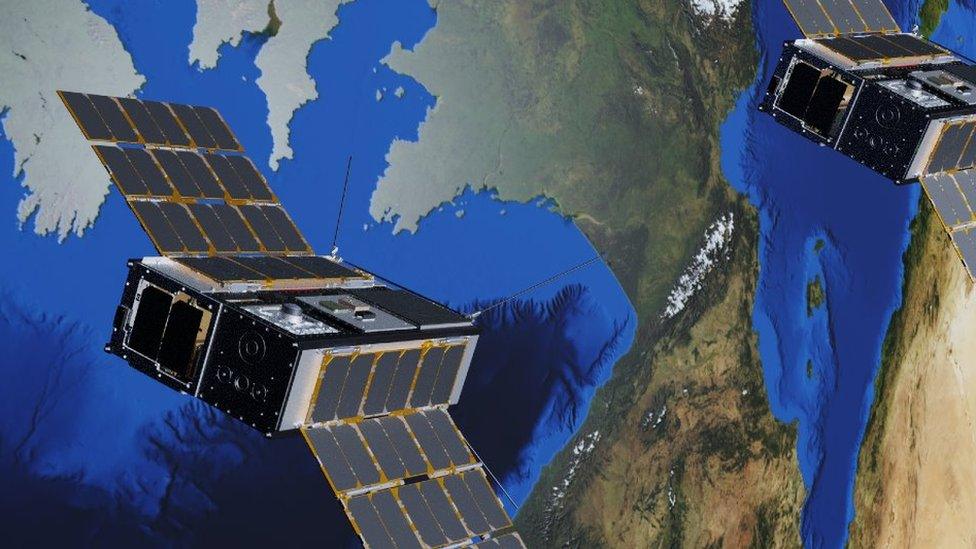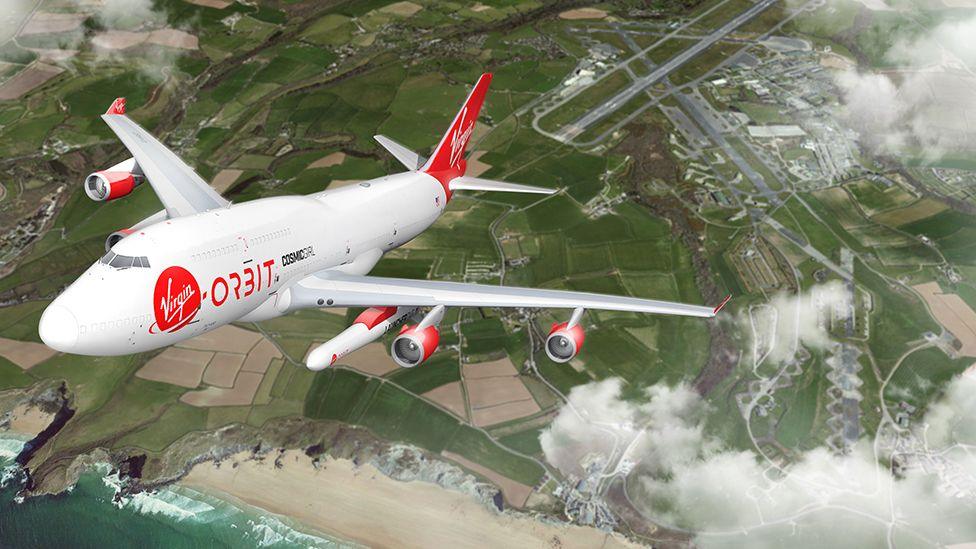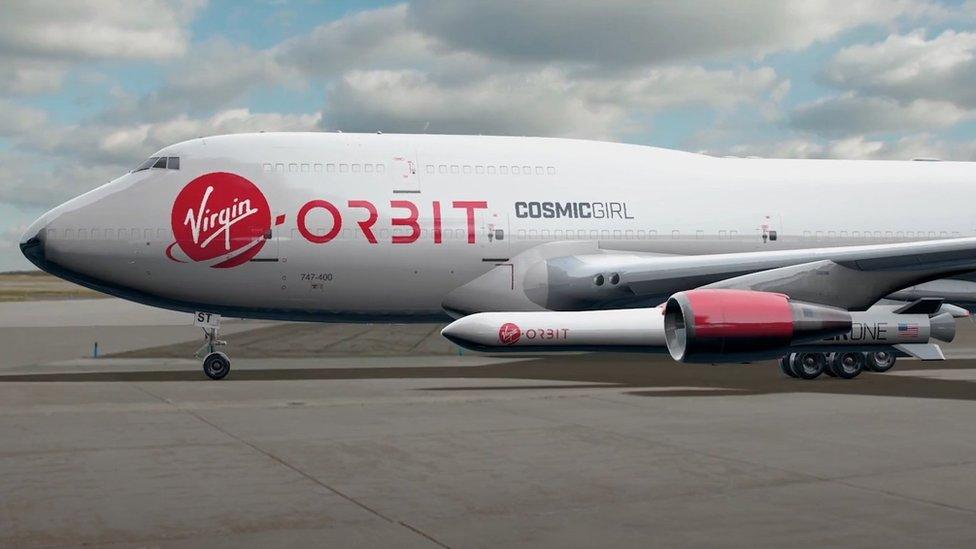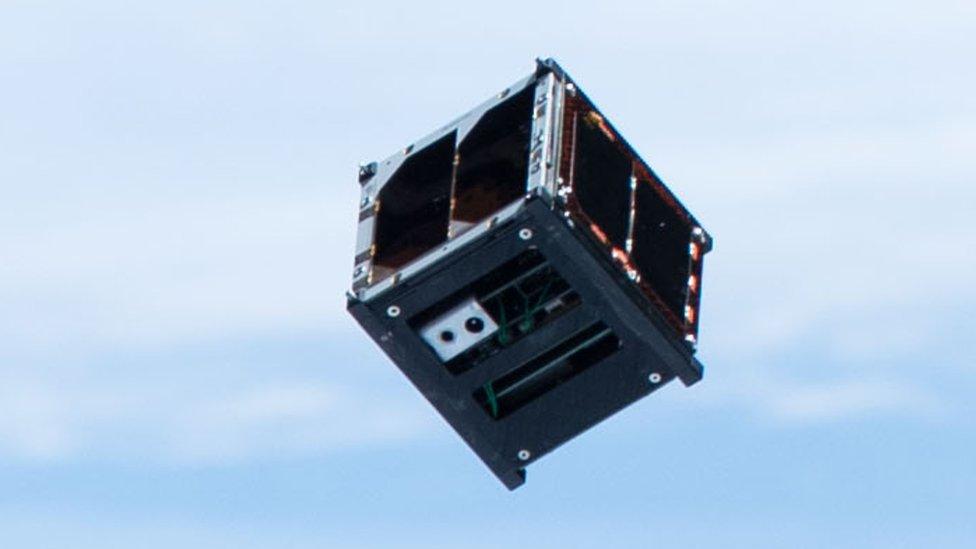MoD satellites to be launched from Cornwall in summer
- Published

The MoD Prometheus-2 satellites will be in orbit about 550km above Earth
Two satellites from the Ministry of Defence (MoD) have been added to the first-ever orbital launch from a UK spaceport later this year.
The launch from Spaceport Cornwall near Newquay is expected in the summer.
The two shoebox-size so-called CubeSats will orbit Earth as part of the Prometheus-2 mission, and be tested for the MoD and international partners.
Defence Minister Jeremy Quin said the launch was an important step for a "homegrown space programme".
Defence Procurement Minister Mr Quin added that space technology was "crucial for developing defence capabilities" and the launch "paves the way for the UK to become a more resilient, more robust and more significant global space entity".

This artist's impression shows how a modified aeroplane will be used to launch small satellites into orbit above Earth
Three satellite launches have already been announced, including the Amber 1 that will help to gather maritime and shipping data, external.
All of the satellites are due to be carried on Virgin Orbit's Launcher One rocket, which takes off horizontally from a modified Boeing 747 jet, named Cosmic Girl.
Melissa Thorpe, Head of Spaceport Cornwall, said: "We are tracking a launch late summer.
"At the minute, the end of August or beginning of September is what we are working towards, and hopefully we will have an announcement over the next couple of weeks about exactly when that is."
The Prometheus-2 equipment has been built by In-Space Missions Ltd, based in Hampshire, and designed with Airbus Defence and Space.
Project bosses said it would provide a test platform for "monitoring radio signals including GPS, and sophisticated imaging, paving the way for a more collaborative and connected space communication system with our combat allies".
The Cubesats will operate in low orbit, about 550km (340 miles) above the Earth, and 50km to 100km (30 to 60 miles) apart at speeds of 17,000mph.

Follow BBC News South West on Twitter, external, Facebook, external and Instagram, external. Send your story ideas to spotlight@bbc.co.uk, external.
- Published24 February 2022

- Published23 November 2021

- Published25 January 2021

- Published17 January 2021